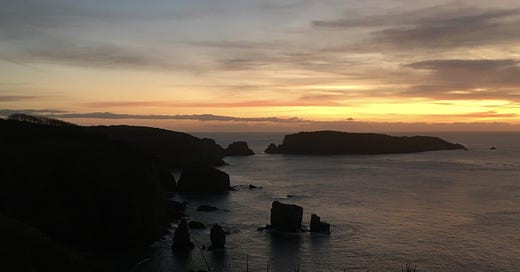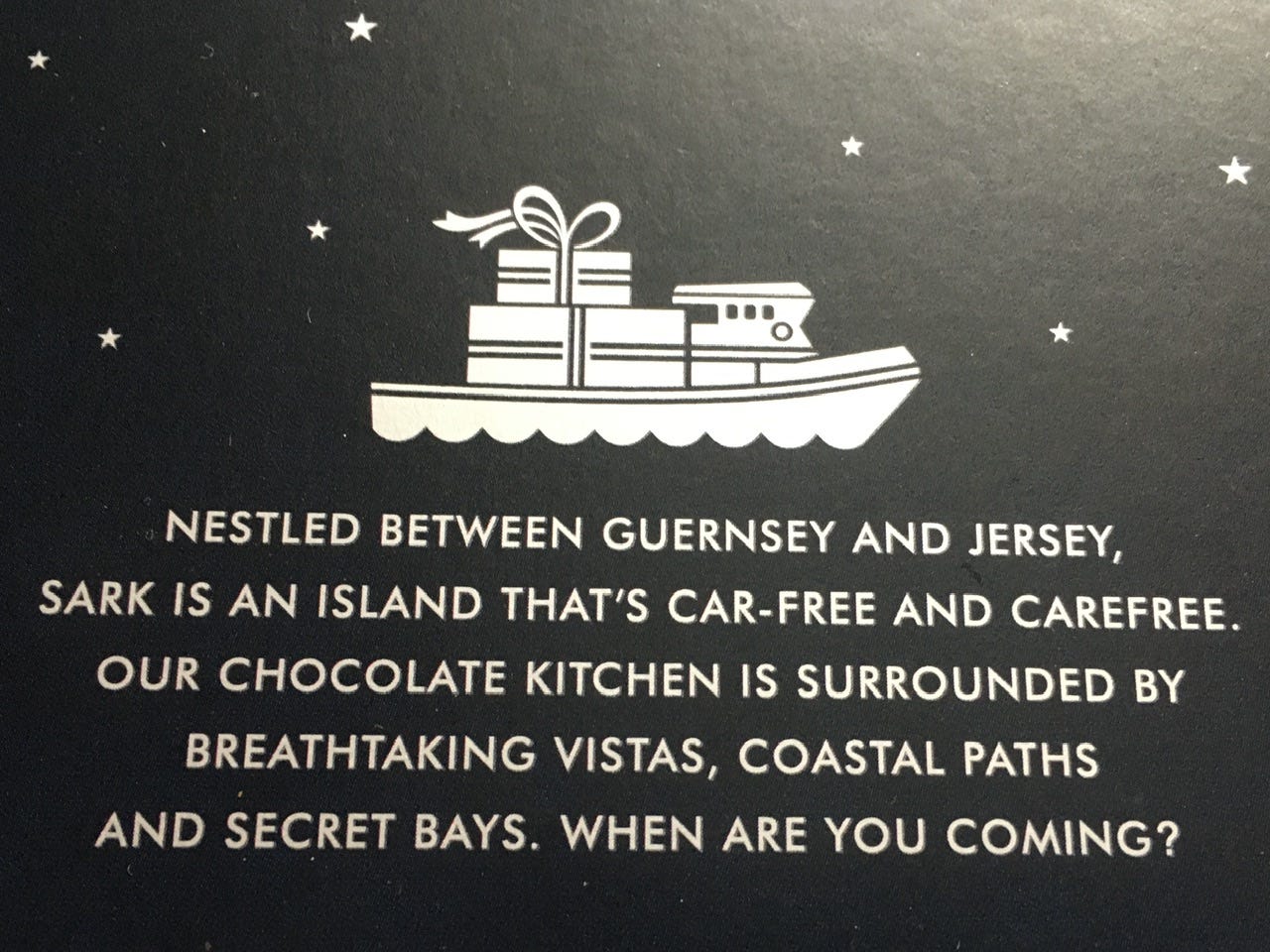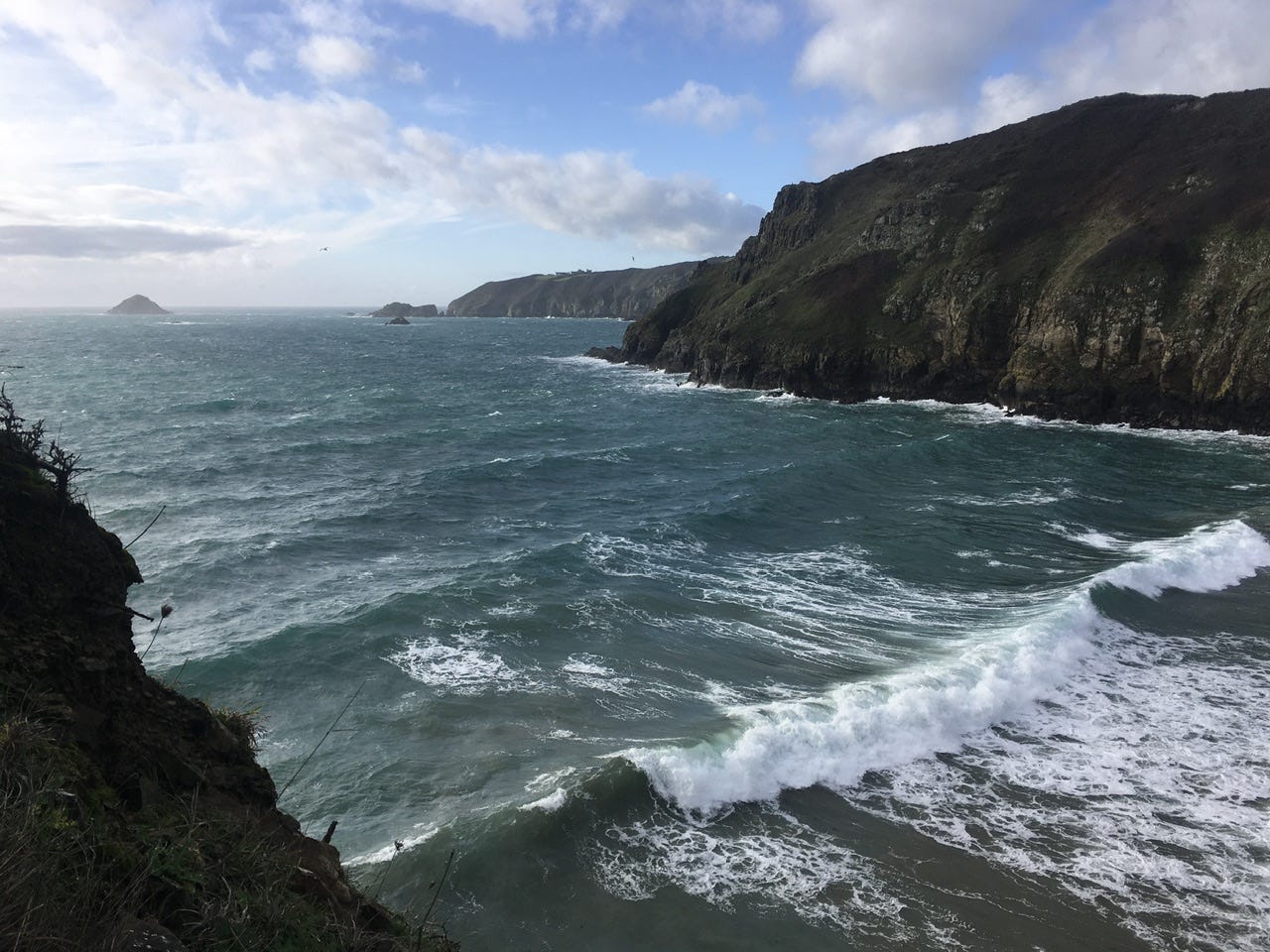This is the first installment of the Stars Without Cars series. On the surface, the series comprises a set of guides for would-be visitors to car-free and “car-lite” International Dark Sky Places. On a more abstract level, these case studies constitute a “proof of possibility” that compact, active-transportation-friendly communities and dark-sky-friendly communities can exist as one and the same.
Sark: The Original Dark Sky Island
Sark, a 3-mile-long island in the English Channel, is the obvious place to begin our “Stars Without Cars” series. Although it was certified as a Dark Sky Community in 2011 — a mere three years after holding its first democratic elections — this former feudal state is perhaps even more renowned for having no cars (only tractors, horses, bicycles and “invalid buggies”) than it is for having little light pollution.
More generally, Sark is often seen (and advertised) as a relic of the past, and its lack of light pollution is a direct consequence of its deliberate lack of modernization. The island is, in fact, something of an outlier among IDSPs in that it has no streetlights. Not shielded streetlights. Not low Kelvin streetlights. Not streetlights with curfews or timers or motion sensors. NO streetlights. Indeed, tourist brochures often mention “no streetlights” in the same breath as “no cars” and “no paved roads” — all examples of Sark’s marketable image as a living manifestation of a simpler time gone by.
That said, I have personally spent a good deal of time on Sark, and I find it unfair to portray the island as stuck in the past. Sark has electricity, indoor plumbing, Internet and cellular service. Its shops accept credit card payments and sell goods brought to you by the global supply chains of post-industrial capitalism, in addition to locally made goods worthy of a cool hipster college town — from Caragh Chocolates (featuring an impressive variety of vegan options) to Sark Distillery and its award-winning Sark Gin to the Sark Fudge Company and Island Alchemy delicious hemp-infused treats. The Smuggler’s Bar at Stock’s Hotel boasts a collection of global whisky second to none. Amish Country it is not. On Sark, one gets the feeling that it’s possible for people simply to prefer to live in a community with no cars and no streetlights, absent any commands from the Lord Almighty.
Getting There
As long as you are able to reach an international airport, there is no need to drive at any point on your journey to visit car-free Sark. (Conversely, if you live on Sark, there is no need to hire a car to leave the island and travel the world.)
The way to reach Sark is via boat, and if you don’t have a private vessel, that means taking a ferry from either Guernsey or Jersey (both worth visiting in their own right). The Isle of Sark Shipping Company provides service year round from Guernsey. There are also seasonal ferries to Sark from Jersey with Manche Îles Express.
The ports of Guernsey and Jersey can be reached by a connecting ferry from Brittany or southern England, but travellers from further afield would probably prefer to fly into Guernsey Airport (GCI) or Jersey Airport (JER). It won’t take long to clear customs, and once outside of the diminutive terminal, you will find direct buses to the city: several lines run from GCI to St Peter Port, and line 15 runs from JER to St Helier. On either island, it is possible to pay with credit card when boarding the bus, and fares are reasonable. It is an easy walk from the bus stop to the ferry terminal.
Amenities
Sark has two small but perfectly adequate grocery stores that remain open the full year: Food Stop on The Avenue and Mon Plaisir on Rue du Sermon. The Post Office, also located on The Avenue, also happens to stock a variety of household goods (and even, the last I checked, plush octopods). For those who wish to drink at home, the Food Stop has a small alcoholic beverage selection, including Sark Gin, and the Bel Air (open year-round) is not only a cozy place for a drink but also has an off-license.
There are a few bars and restaurants that are open year-round, with many additional options during the season (the Food Stop and the Visitor Centre typically post lists of what’s open at any given time). I have been pleased with the variety and quality of food options for such a small island (and with such strong British influence… sorry).
There is a doctor on the island, but keep in mind that Sark is not part of the UK, and health care is not a free service here. Traveller’s medical insurance is recommended for the risk averse.
Accommodations
The Isle of Sark maintains its own catalogue of licensed accommodations, and it is highly recommended to shop directly from this official site rather than searching Booking.com, Airbnb, or the like. Although you can find a few listings on the latter sites, you will not find all options, nor will you find the best prices. (Note, however, that it can be difficult to find self-catering accommodations suitable for a solo traveller – most self-catering properties are large and expensive – but there have been a few smaller cottages and apartment off and on the holiday market in recent years.)
Getting Around
If you are in the center of (“Big”) Sark, then most everything is walkable, but you might find a bike useful. If you are in Little Sark, then you will certainly want a bike. For visitors, there are several options on the island to hire a bike (with A to B Cycles being the only one that I have personally used; I can recommend it).
There is no transit on the island, except for the tractor bus that can be used to ride up and down the Harbour Hill to and from the ferries (most passengers avail themselves of the service, but for my own part, I like to hand off my luggage to the tractor porter and then walk up the hill along the verdant footpath). Then again, when your entire island is less than 5.5 square kilometers, a public transit system is hardly needed.
Did you find this post useful or informative? Consider buying me a coffee on Ko-Fi. Any writing that I post here will always be free to the public without paywalls or paid subscriptions, but I appreciate any contributions; your voluntary support will help me keep at this.
Follow me on Bluesky.










